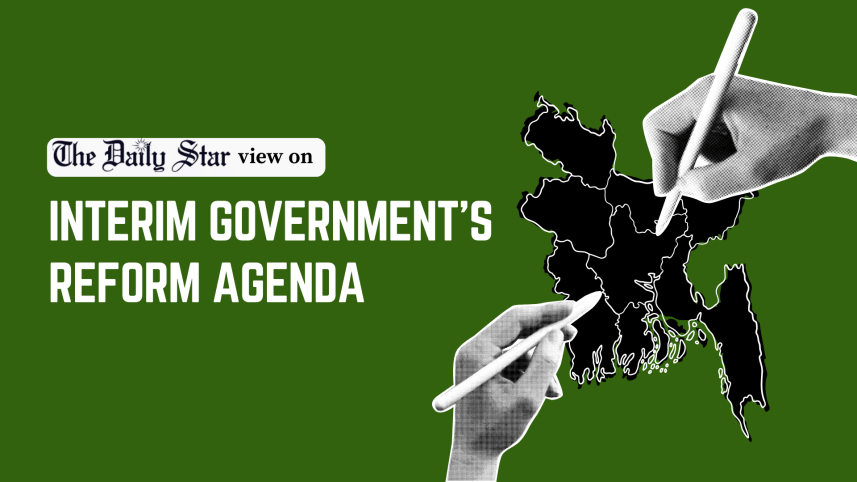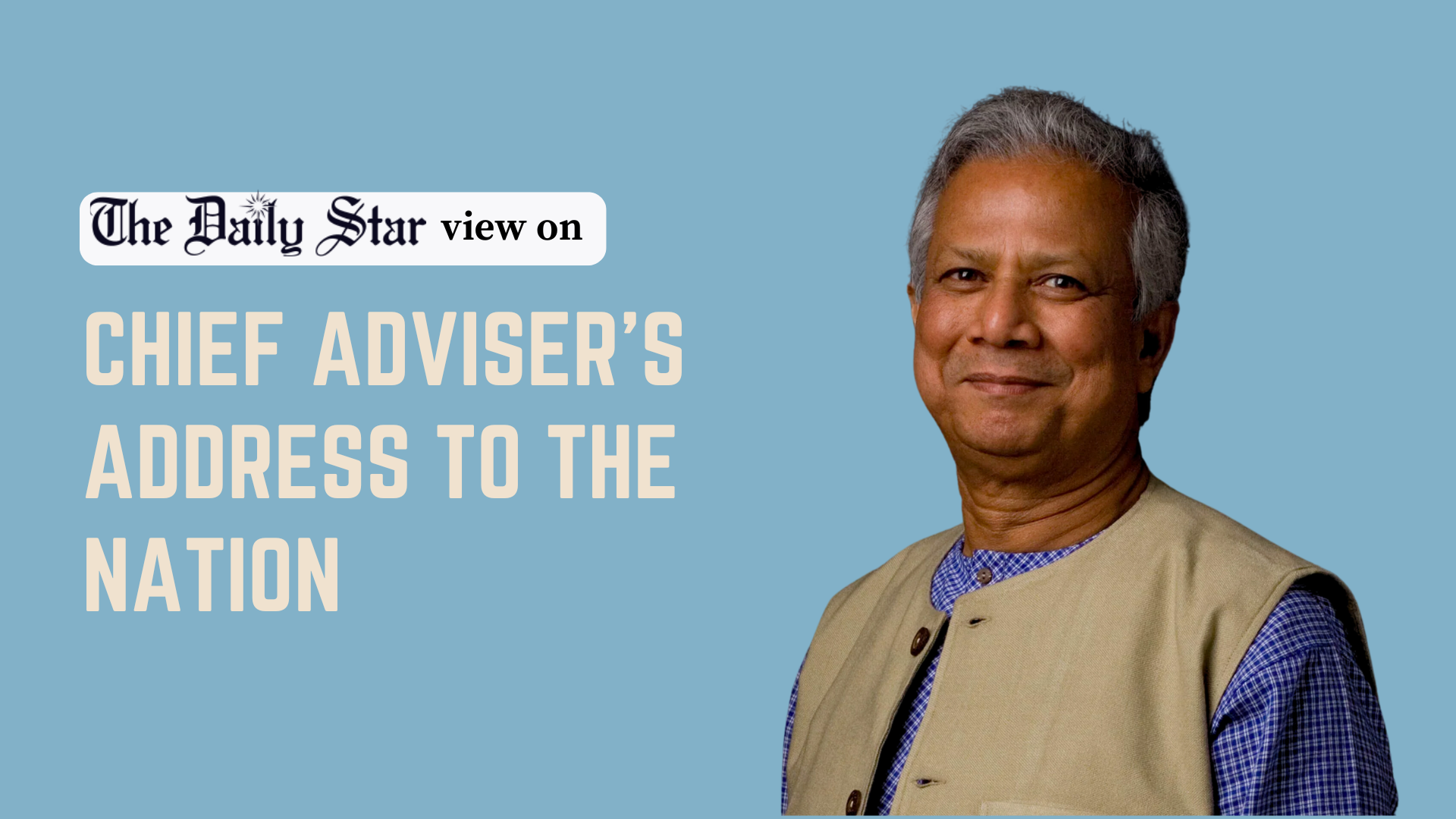The interim government's reform agenda is promising

We are pleased with the outline presented by Chief Adviser Prof Muhammad Yunus during his address to the nation on September 11. Emphasising the need for a systemic reform, he announced that the interim government had decided to establish six commissions. These commissions will be primarily tasked with reforming the judiciary, electoral system, administration, police, Anti-Corruption Commission (ACC), and the constitution, with the goal of creating a state system based on public ownership, accountability and welfare. It is also commendable that a three-month deadline, starting from October 1, has been set for these commissions to complete their tasks.
According to the chief adviser, these reforms have become essential to prevent the re-emergence of fascism or authoritarian rule in Bangladesh, and we agree. However, in implementing them, we hope the interim government remains true to its promise of inclusivity and ensures that its actions are transparent to the public. Given what transpired during the last three elections under the authoritarian Awami League government, reforming the four institutions related to the electoral process—the police, public administration, judiciary, and ACC—is crucial to ensure that future governments remain accountable to the public and can be peacefully removed from power. As the chief adviser stated, the nation does not want to witness another bloody uprising like the one made necessary by the oppressive Hasina-led government, which clung to power through brutal suppression.
The chief adviser raised a couple of key concerns, including the weak state of the economy and the factors further worsening it. The crony capitalist actions of the previous government and its cohorts have left our economy in an extremely vulnerable state. The ongoing worker protests and factory closures are adding to this pressure. While we understand that workers have many legitimate demands that have gone unmet over the years—which we have written about in this column—we urge them to support the continued operation of factories during this difficult time. At the same time, we call on factory owners to engage in meaningful dialogue with workers to find a solution that benefits both parties. In this regard, we also urge the interim government to play a constructive role in facilitating and mediating these discussions.
The key message to take away from Prof Yunus's speech is the need for national unity, inclusivity, and active participation from all stakeholders to reform and rebuild the nation. In this regard, we hope that businesses, NGOs and other organisations, and ordinary citizens will step up to create a new Bangladesh in which they themselves would want to live.



 For all latest news, follow The Daily Star's Google News channel.
For all latest news, follow The Daily Star's Google News channel. 

Comments